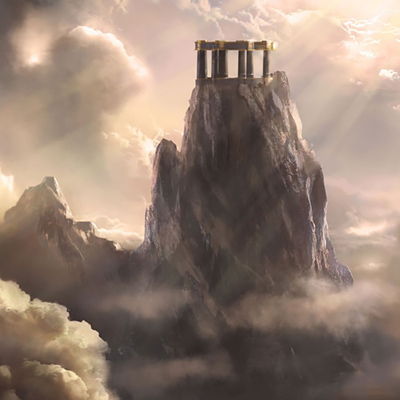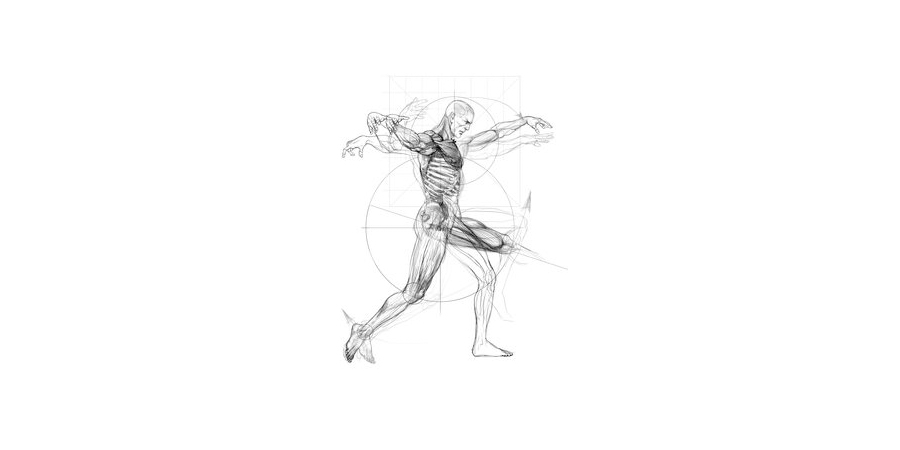Many years have passed since the Greeks and Romans worshiped the gods and goddesses of Mount Olympus— centuries, in fact. The ancient characters you may have heard of before, like mighty Zeus, monstrous Medusa, and seductive Aphrodite, originate from myths dating back to 900 B.C.
Classical mythology has impacted history, literature, culture, and life across the Western world and beyond; truly, it has shaped the ancient world and the modern world, and continues to impact contemporary life today. For example, the language you speak has been impacted by classical mythology: Conceited people are narcissists; your enemy’s weakness is his Achilles heel; you may have experienced a dreamlike state of hypnosis; and you’ve used an atlas to gaze at the world. The months of the year trace their names to Roman mythology; the constellations have their origins in myth, too.
The ancients, just like us, hungered for knowledge. Most wanted explanations for what they considered to be phenomena they encountered in their daily lives. Others went beyond that and wanted reasons for the structure of the universe. Regardless of the importance or size of the question, a curiosity drove them to begin asking questions. And myths were formed to provide explanation for these otherwise unanswerable questions. Mythology doesn’t come from a single source. Myths develop as they’re told and retold, passed from one storyteller to another, from one generation to the next. These poets, dramatists, and other storytellers were the best-selling authors of their time. Because their works were popular and valued, they were recorded and preserved.
CHAOS, PROMETHEUS, AND THE BIRTH OF MAN
Today, numerous theories exist about how the universe was created. The ancients also wondered how the universe was created, and their attempts at explaining this creation formed the basis of various myths. One idea was constant, however: The universe emerged from chaos.
Before there was Earth or sky or seas, all of the elements of the universe were one, and this oneness was called Chaos. Chaos was a shapeless void of confusion, but it held the seeds of an organized universe.
 Contained within Chaos the elements—earth, sky, sea— were jumbled together; no one element had an identity. Earth didn’t have its shape, the sky didn’t have air, and the sea was not watery. The elements fought constantly until an unknown force put an end to the disorder. This force is not explicitly identified in the myths. Regardless, the elements were separated—heaven from earth, sea from sky, heat from cold, and so on—and this separation imposed the order needed to create the universe. Once separated, the elements still needed shape and definition. According to one popular myth, an unnamed force (some call it the Creator) first gave shape to Earth. The Creator designated water to its appropriate places; he then raised the mountains, smoothed out the plains, and shoveled out the valleys, distributing forests, rocky terrain, and fertile fields. Next came the sky: The Creator spread out the air like a blank canvas. He added clouds, thunder, lightning, and winds. The stars, however, he drew from the confines of darkness. After setting up the sky and Earth, the Creator added the fish to the seas, the birds to the air, and beasts to land. Not all of the beasts were created at this time—humanity still did not exist.
Contained within Chaos the elements—earth, sky, sea— were jumbled together; no one element had an identity. Earth didn’t have its shape, the sky didn’t have air, and the sea was not watery. The elements fought constantly until an unknown force put an end to the disorder. This force is not explicitly identified in the myths. Regardless, the elements were separated—heaven from earth, sea from sky, heat from cold, and so on—and this separation imposed the order needed to create the universe. Once separated, the elements still needed shape and definition. According to one popular myth, an unnamed force (some call it the Creator) first gave shape to Earth. The Creator designated water to its appropriate places; he then raised the mountains, smoothed out the plains, and shoveled out the valleys, distributing forests, rocky terrain, and fertile fields. Next came the sky: The Creator spread out the air like a blank canvas. He added clouds, thunder, lightning, and winds. The stars, however, he drew from the confines of darkness. After setting up the sky and Earth, the Creator added the fish to the seas, the birds to the air, and beasts to land. Not all of the beasts were created at this time—humanity still did not exist.
Uranus, said to have been born to Gaia in her sleep, mates with his mother (yes, incest permeates classical mythology) to create the rest of Earth’s elements, such as the waters, forestry, and the beasts. Uranus and Gaia also produced other children, including the Titans and Titanesses, the Cyclopes, and the Hundred-Handed Ones. Nyx mated with Erebus to produce Hemera (Day) and Aether (Air). Nyx also bore several other children. These are Thanatos (Death), Hypnos (Sleep), Moros (Doom), Nemesis (Retribution), Oizys (Pain), Momus (Sarcasm), Eris (Strife), the Keres (the female spirits of death), Geras (Old Age), Oneiroi (Dreams), and the Moirai (Fates).
Obviously, she was quite busy. The unions did not end there, but this explanation helps to define the elements of the universe a little bit further. So far, both myths discussed have set the stage for the creation of humanity. The ancient myths vary on exactly how people were created. One myth, popular with Greeks and Romans alike, states that man simply sprang up from the earth. Remember the seeds of the universe buried in Chaos? This myth contains a similar idea about humanity: The seeds of man were buried in the earth. These seeds produced men, who were considered the children of Gaia.
Prometheus
When considering the ancient myths surrounding mankind’s creation, Prometheus is often given credit for this monumental task. Another theory is that Prometheus was the creator of man. Prometheus was a Titan and one of Gaia’s many grandchildren. Prometheus and his brother Epimetheus were given the task of not only creating man, but also of giving the other beasts of Earth protection. Epimetheus took it upon himself to present the beasts with gifts of preservation and Prometheus was to supervise his work. Therefore, Epimetheus is credited with giving the turtles their shells, the leopards their spots, and the bears their claws.
When it came time to create man, Prometheus performed this task himself, using earth and clay as his materials. He kneaded this with water and fashioned the form of man, which was molded in the likeness of the gods. But the first man was not what we know as the man of today. The mortal man went through several stages before reaching the final desired effect.
Epimetheus did such a good job of distributing gifts that by the time he was finished with his task, all the gifts of protection were accounted for—except for man’s gift. Prometheus decided that man also needed a gift of protection, one that went beyond all the others—and that gift was fire. But Zeus, ruler of the gods, was quite angry with mankind and refused to give them this fire. Prometheus was adamant though and resolved to steal fire from the heavens. Prometheus bestowed the gift of fire unto mankind.
According to one account, Prometheus stole fire from the forge of Hephaestus, the smith of the gods. Another account states that he stole the fire from the wheels of Helios’s (the sun’s) chariot and concealed it in the stalk of a fennel plant. Regardless of how it happened, the quest was successful.
When Zeus looked down upon the Earth at night and saw it shining with firelight, his anger shook the heavens. He sent for his servants and ordered them to arrest Prometheus. The punishment of Prometheus was rather severe. Zeus ordered that Prometheus be bound by steel chains to a rock far from mankind. Zeus then sent an eagle to feed on his liver every day. The liver would regenerate every night. Vowing to never release Prometheus, Zeus left him to endure this torturous punishment.
PANDORA’S BOX
Woman: The Greatest Sculpture Ever Created – with a Catch
 After Prometheus created man, he gave man the gift of fire— deliberately disobeying Zeus’s rule. Even after punishing Prometheus for his insolence, Zeus was unhappy with the strength men had gained from the gift of fire. Therefore, he devised a scheme to inflict a powerful weakness upon men. Enter the woman. Until this time, according to the myths, mortal women did not exist.Zeus ordered Hephaestus to fashion a woman from clay and water. The result was the greatest sculpture ever created. Just as man had been molded in the image of the gods, woman was molded in the image of the goddesses. As if this weren’t enough, every deity contributed to Hephaestus’s creation. Woman was given beauty, along with lust, splendid clothes, lustrous jewelry, and the gifts of music, grace, dexterity, and charm. In addition, woman was given the arts of seduction, deceit, and guile. These traits combined to create a dangerous temptress that man would be unable to resist. Her name was Pandora.
After Prometheus created man, he gave man the gift of fire— deliberately disobeying Zeus’s rule. Even after punishing Prometheus for his insolence, Zeus was unhappy with the strength men had gained from the gift of fire. Therefore, he devised a scheme to inflict a powerful weakness upon men. Enter the woman. Until this time, according to the myths, mortal women did not exist.Zeus ordered Hephaestus to fashion a woman from clay and water. The result was the greatest sculpture ever created. Just as man had been molded in the image of the gods, woman was molded in the image of the goddesses. As if this weren’t enough, every deity contributed to Hephaestus’s creation. Woman was given beauty, along with lust, splendid clothes, lustrous jewelry, and the gifts of music, grace, dexterity, and charm. In addition, woman was given the arts of seduction, deceit, and guile. These traits combined to create a dangerous temptress that man would be unable to resist. Her name was Pandora.
As his gift to mankind, Zeus ordered Hermes, the messenger of the gods, to deliver Pandora to Epimetheus. Awestruck by her beauty and charm, Epimetheus accepted Pandora as his bride, even though his brother Prometheus had warned him to not accept gifts from Zeus. The ancient myths vary in the telling of Pandora’s Box. One myth says that the gods gave Pandora a sealed jar and told her it was a gift to man. They did not tell her, however, what the jar held, and it wasn’t long before her curiosity got the better of her. Pandora opened the jar and out flew the plagues of mankind: disease, pain, sorrow, insanity, envy, and death. Hastily replacing the lid, Pandora trapped hope, which was all that remained in the jar.
Another myth states that all the evils of the world were kept in a jar or box in the house of Epimetheus (whether this container belonged to Epimetheus or Prometheus is unknown). Overcome by curiosity, Pandora snuck into the room and removed the lid. Again, out poured all the ills of mankind, leaving behind only hope, which did not escape.
Still other versions of Pandora’s myth say that the box contained only good things: blessings that were a wedding present from Zeus. In these versions, Pandora’s curiosity again overcame her and she opened the box carelessly. All of the blessings escaped and returned to the heavens, except for hope. With the loss of most of the blessings, humanity had to endure all the hardships and evils of the world with only hope as a consolation. Whichever version of her myth you prefer, Pandora’s curiosity left humanity virtually defenseless against the difficulties that plague human life—and so Zeus got his revenge.
GAIA (EARTH) AND PONTUS
Gaia (Mother Earth) was part of the original offspring during creation. She had a huge responsibility to the universe, being the Earth and all, but above all else, she was a mother.According to the myth describing the world’s creation from Chaos, Gaia gave birth to three children without the aid of a man. One of these was Pontus, the Sea. Gaia, although quite busy creating elements for the universe, took time out to then mate with Pontus. This union produced five children: Ceto, Eurybia, Nereus, Thaumas, and Phorcys, but this is a story for another time,…
- This article is a short excerpt from the book:
Mythology 101: From Gods and Goddesses to Monsters and Mortals, Your Guide to Ancient Mythology

